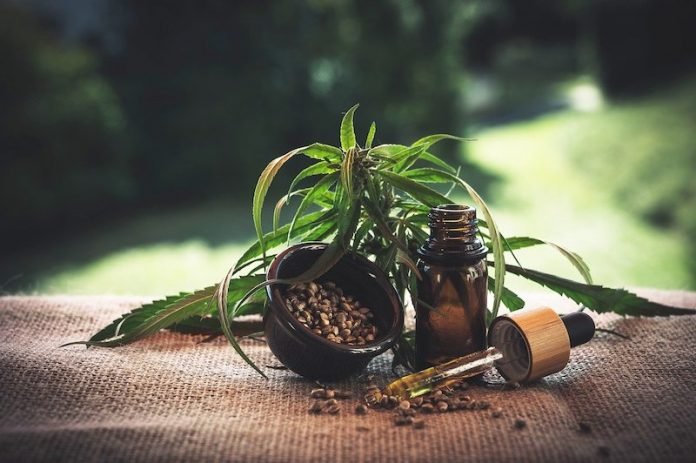
In a new study from Oregon State University, researchers found hemp compounds had the ability to prevent the virus that causes COVID-19 from entering human cells.
Hemp, known scientifically as Cannabis sativa, is a source of fiber, food and animal feed, and multiple hemp extracts and compounds are added to cosmetics, body lotions, dietary supplements and food.
In the study, the team found that a pair of cannabinoid acids bind to the SARS-CoV-2 spike protein, blocking a critical step in the process the virus uses to infect people.
The compounds are cannabigerolic acid, or CBGA, and cannabidiolic acid, CBDA, and the spike protein is the same drug target used in COVID-19 vaccines and antibody therapy.
The team says these cannabinoid acids are abundant in hemp and in many hemp extracts.
They are not controlled substances like THC, the psychoactive ingredient in marijuana, and have a good safety profile in humans.
The research showed the hemp compounds were equally effective against variants of SARS-CoV-2, including variant B.1.1.7, which was first detected in the United Kingdom, and variant B.1.351, first detected in South Africa.
Those two variants are also known as the alpha and beta variant, respectively.
The team says the compounds could be used to prevent SARS-CoV-2 infection and also to shorten infections by preventing virus particles from infecting human cells.
They bind to the spike proteins so those proteins can’t bind to the ACE2 enzyme, which is abundant on the outer membrane of endothelial cells in the lungs and other organs.
Using compounds that block virus-receptor interaction has been helpful for patients with other viral infections, he notes, including HIV-1 and hepatitis.
If you care about COVID, please read studies about warm vaccine that could effectively fight all COVID-19 variants, and aspirin and anti-inflammatory drugs that could help prevent COVID-19 deaths.
For more information about health, please see recent studies about plant extract that could help treat COVID-19, and results showing that some at-home COVID-19 tests may fail to detect omicron early.
The study is published in the Journal of Natural Products. One author of the study is Richard van Breemen.
Copyright © 2022 Knowridge Science Report. All rights reserved.



